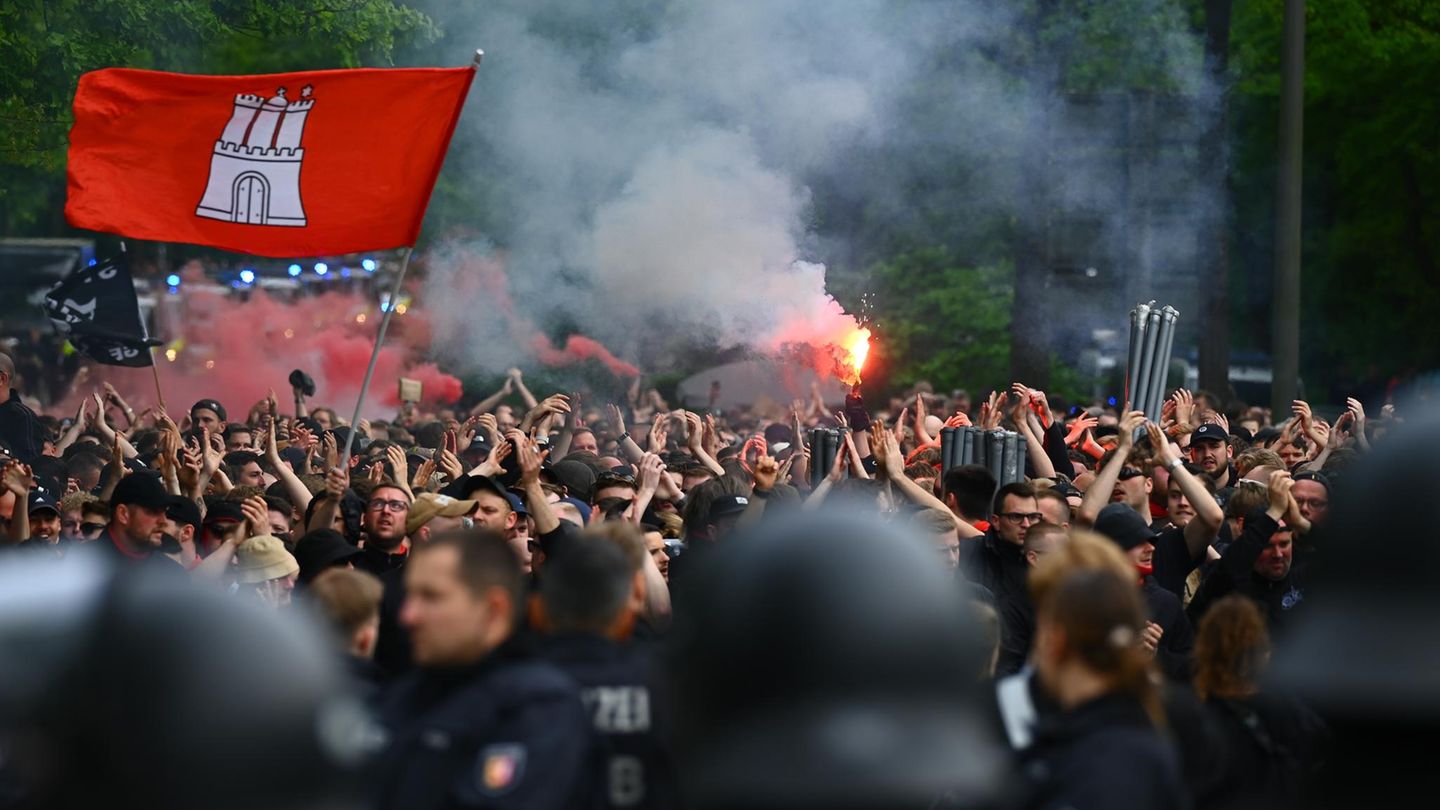High risk games
States can ask Bundesliga teams to pay – these are the consequences
The way is clear for the “Bremen model”: In the future, Bundesliga clubs can be asked to pay for the costs of police operations. But what does that mean for the clubs?
A years-long legal dispute has come to an end: It has been decided that the federal states may in future pass on the costs of police operations during high-risk games in the 1st and 2nd Bundesliga to the German Football League (DFL). Karlsruhe thus confirms the so-called “Bremen model”. The city state began charging the local SV Werder for the costs of police operations years ago. For the first time in 2015 in the game against Hamburger SV. Since then, the DFL has resisted the cost allocation. But what does the verdict mean for the clubs and the DFL? The most important questions and answers:
What was the dispute about?
The focus of the proceedings was the question: Who has to pay for police operations at high-risk games played by Bundesliga clubs? Countries like Bremen argued that the organizers are responsible for the safety of spectators at events and therefore have to bear the costs. Bremen’s Fees and Contributions Act has stipulated since 2014 that the city can charge fees for additional police costs for profit-oriented events that are known to be prone to violence with more than 5,000 people.
The DFL countered that most criminal and violent crimes were not committed in, but around the stadiums – i.e. in public spaces. In this area, the police and therefore the states are responsible.
Why did the Federal Constitutional Court decide in favor of the states?
Court President Stephan Harbarth stated in the verdict that the norm “attacked” by the DFL – i.e. the Bremen model – was compatible with the Basic Law. The aim of the regulation is to shift the costs to the person who caused them and to whom the profits accrue. This is a constitutionally legitimate goal.
To put it more simply: Anyone who organizes football games where it is expected that there will be riots and thereby makes a profit can be asked to pay.
Do Bundesliga clubs now have to pay for high-risk games?
No, not across the board. Whether the costs for high-risk games are passed on to the DFL and thus to the respective club remains a matter for the states. But: With its ruling, the Federal Constitutional Court has paved the way for cost allocation to be possible at all. It remains to be seen whether other federal states will follow Bremen’s example. If the model were to become established in the other federal states, the professional clubs would face considerable additional financial burdens.
How much more would the professional clubs have to pay?
This cannot be quantified precisely. So far, Bremen is the only state that passes on the costs of police operations. The first high-risk game between Werder Bremen and HSV in 2015 cost 400,000 euros. The sum has now grown to almost three million euros, according to the DPA news agency.
However, it is unclear whether this provides guidance for the individual costs for the clubs. In federal states such as North Rhine-Westphalia or Baden-Württemberg, where many Bundesliga teams are based and there are many large and small derbies, the costs could be even higher.
It is also still unclear whether and how the DFL will pass on the costs to the clubs.
With material from the DPA news agency
pgo
Source: Stern
I am Pierce Boyd, a driven and ambitious professional working in the news industry. I have been writing for 24 Hours Worlds for over five years, specializing in sports section coverage. During my tenure at the publication, I have built an impressive portfolio of articles that has earned me a reputation as an experienced journalist and content creator.




